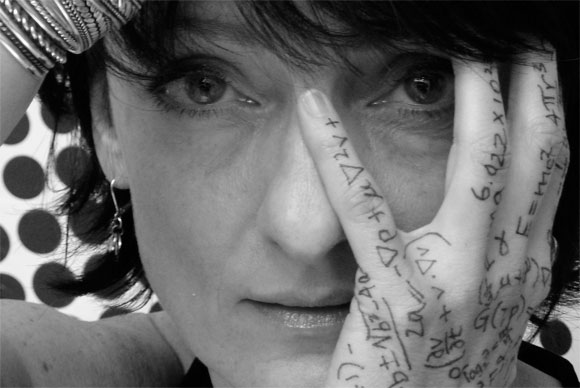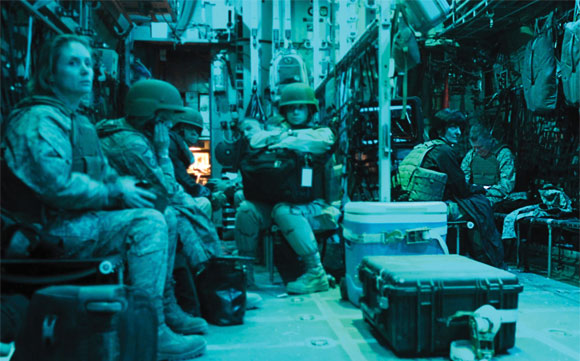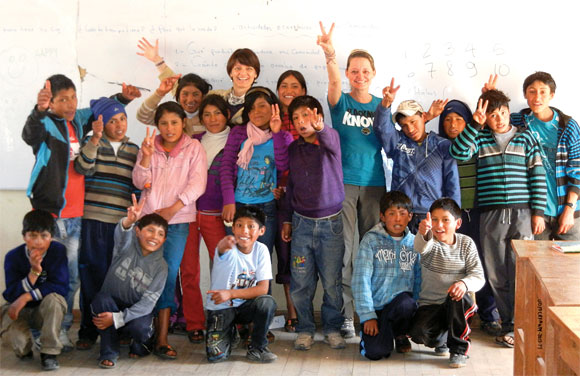ALUMNA PROFILE

"We think someone else, someone smarter than us, someone more capable, someone with more resources will solve that problem. But there isn't anyone else," alumna Regina Dugan advised the world in her 2012 TED talk. Showcasing a list of projects—from a hypersonic Mach-20 glider to a hummingbird drone—that skirted the edges of possibility, Dugan demonstrated how scientists and engineers make the leap from impossible to improbable to inevitable.
Whether it's from her time leading the Defense Advanced Research Projects Agency (DARPA)—an agency known for paradigm-altering breakthroughs such as GPS and the Internet—or from her current role with Motorola Mobility, Dugan (mechanical engineering '84, M.S. '85) knows a thing or two about pushing the limits of what's possible. In fact, she's made a career out of it.
"The future is made by people who believe in something and then make it so," said Dugan of her work and the people she leads.
Dugan calls DARPA, a Department of Defense agency responsible for developing new technologies for military use, "the coolest agency you've never heard of." Long before most homes had a computer, the agency was experimenting with a system intended for military communications—what we now call the Internet. It's just one of a very long list of world-changing innovations to the agency's credit. As Dugan puts it, "You might not know DARPA, but your life knows DARPA."
Dugan, who once served as a program manager with the agency, was DARPA director from 2009 to 2012—a standard tenure for the position. The short timeframe is meant to create a sense of momentum. "You don't go to DARPA to build a career. You go to serve your country; you go to get something done," said Dugan, the agency's first female director and the 19th overall. "It creates this celebrated impatience. It makes [us] push hard. Speed is part of innovation. It keeps our processes light. New ideas are fragile and fleeting, and you have to move fast in order to capture them."
More than the creative process drives DARPA researchers. Their work has a very real urgency: to secure the country and to save the lives of our men and women in combat. "If you can save one life there, it really matters," said Dugan, who earned a Ph.D. from the California Institute of Technology.

Sanjay Raman, currently Virginia Tech's associate vice president for the National Capital Region and a professor of electrical and computer engineering, worked as a program manager at DARPA under Dugan. "The word that comes to my mind is passionate, and just really, really committed to the warfighter [a soldier in combat] and committed to trying to get the best technologies as fast as we can," said Raman of Dugan's leadership.
Raman said Dugan's creativity was always grounded in reality. For example, under her leadership the agency established the DARPA Forward Cell in Afghanistan, DARPA's first full-time forward presence in a combat zone since Vietnam, according to the agency's website. In fact, Dugan visited Afghanistan five times while serving as director. "One of her passions was making sure these kind of pie-in-the-sky ideas were really grounded in real-world applications that were relevant to the warfighter," Raman said.
He also credits Dugan with DARPA's pivot toward emphasizing and investing in cybersecurity. "[That] is a very important legacy ... and as we move out of Afghanistan, that's probably the more-lasting legacy," Raman said.
After leaving DARPA, Dugan moved onto another organization highly regarded for its visionary climate: Google-owned Motorola Mobility. The move isn't Dugan's first venture into the private sector. Prior to DARPA, she co-founded a niche investment firm and also served in executive roles in several commercial companies.
"Spirited, renegade pirates" is the term Dugan fondly uses to describe fellow members of Motorola Mobility's Advanced Technology and Projects (ATAP) group, of which she is now senior vice president. The team's mission is to quickly move innovative new technologies from ideas into products. Speaking at the Wall Street Journal's D11 conference in May, Dugan introduced the idea of using electronic tattoos—temporary, wearable technologies—in place of traditional passwords. The concept is just one of the wild, futuristic-sounding technologies being explored at ATAP.
What may sound out of this world to many is grounded in reality for scientists and engineers like Dugan. "Boring is the enemy of innovation," she said. "I believe that we crave good work, good work with meaning, where we can contribute something to the best of our abilities, something that matters." For Dugan, her core mission is to offer the people around her the opportunity to change the way we interact with each other and technology.
Don Leo, the former vice president and executive director of Virginia Tech's National Capital Region operations who was recently named dean of the University of Georgia's College of Engineering, once served as a project manager at DARPA and interacted with Dugan while she led a technology company in the Washington, D.C., area. He called her a "natural leader" who has an "understanding of the technology pipeline [and] what investments you need to make in ideas to mature that technology rapidly so it [has] an impact in the marketplace." Both qualities, Leo said, will ensure her success leading ATAP.
Though Dugan can't speak about most of the specific projects she oversees at Motorola because they aren't yet public knowledge—not unlike the secrecy that cloaks many DARPA projects—the projects she leads may one day change the world.

Dugan believes that only by taking risks do we create life-changing technologies, and she's a big believer in overcoming the fear of failure. "Failure is part of creating new and amazing things. We cannot both fear failure and make amazing things."
At the end of the day, whether she's parsing data from a test flight of a Mach-20 glider or reading a poem by a favorite poet, Dugan finds that actively engaging in the creative process is essential to her life. She insists that scientists and engineers are a lot like artists, which is perhaps why so much of her spare time is occupied by the arts.
"I have a strong appreciation for art in general. In fact, I find that I crave those things in my life—music and art and poetry and dance. Science is art. It is the process of creating something that never existed before. ... It makes us ask new questions about ourselves, others; about ethics, the future."
Produced by University Relations